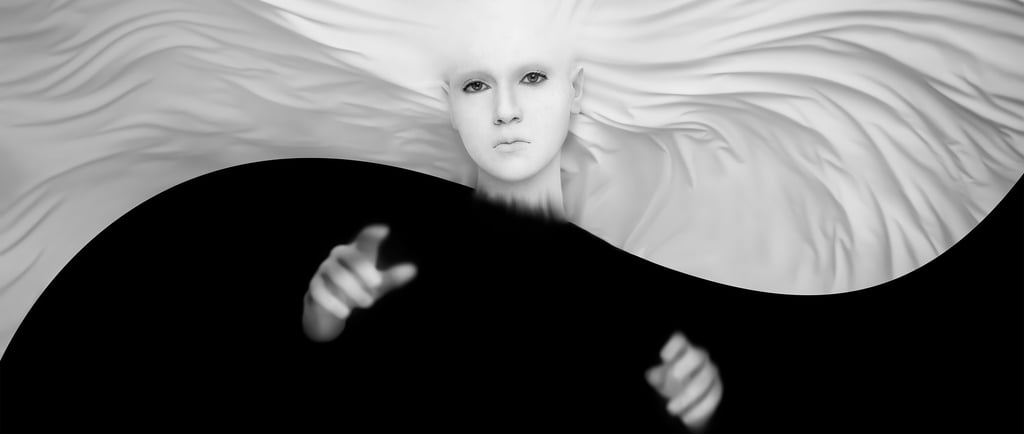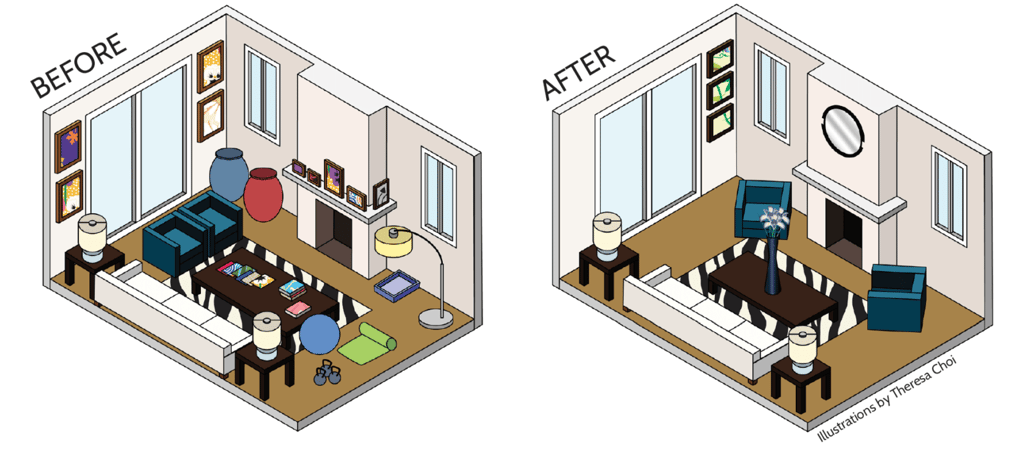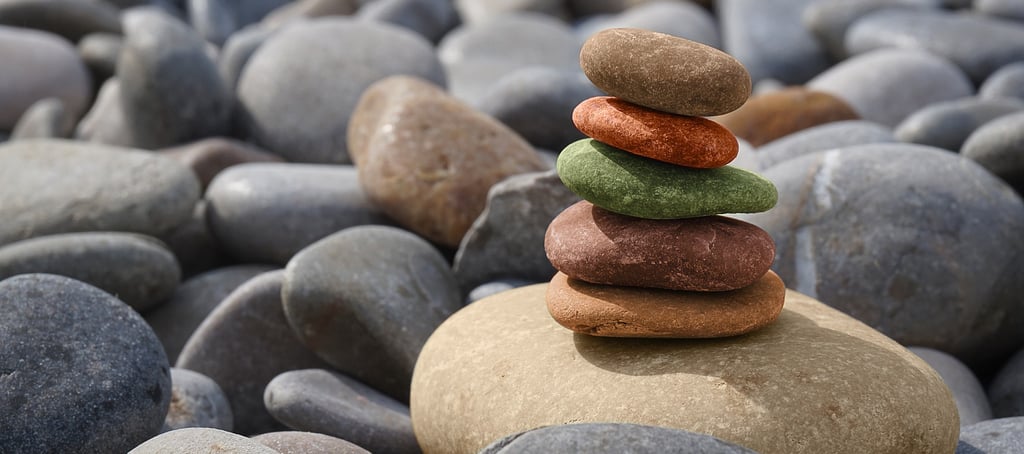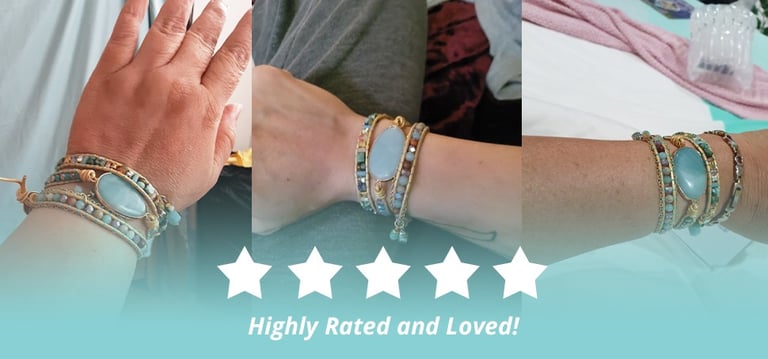Modern Day Feng Shui
Feng Shui, with its web of principles and peculiar quirks, often finds itself on the outskirts of mainstream interior design. Wonder why such a rich tapestry of ancient wisdom struggles to capture modern enthusiasm? Perhaps it’s the staggering array of rules that dictate the placement of every object, for starters. The lack of empirical evidence backing its claims adds another layer of skepticism, leaving critics to write off its practices as whimsical rather than substantive.
YIN AND YANGTAOISMFENG SHUI
Illya Burke
2/19/20254 min read


Feng Shui, at its core, is like the ancient Chinese version of interior design—except instead of following trends with brands, it follows energy. The name literally means "Wind-Water," citing the way natural forces mold our world. It’s all about arranging your space to create a harmonious flow of energy (chi), and this supposedly brings good health, prosperity, and overall happiness into your life. I suppose, it can't hurt, and you have nothing to lose by practicing Feng Shui so you can't fumble it, really. Think of it as a spiritual hack for your home, using strategic furniture placement and architectural decisions to improve the aura of your living space.
Back to Feng Shui. It works with the five elements (wood, fire, earth, metal, and water) and the principle of Yin and Yang. A Feng Shui-approved home doesn’t just "look good"; it feels right— when it's done well. For example, placing your bed in the "command position" (facing the door but not directly in line with it) promotes security and better rest. While some aspects are sensible, to me, there are just way too much nit-picking going on there. Like if a mirror faces the bed, that's bad. If your entrance is across a staircase, bad; if your front door faces the back door, also bad. Cmon, now. The majority of houses aren't custom built, and most people go with what is convenient, so a lot of these instructions are in all actuality, illogical with the exception of a few teachings.
Cluttered spaces block the flow of energy, while mirrors can bounce good energy around or, if placed wrong, amplify chaos. Modern applications of Feng Shui aren't just about superstition; even high-end real estate and architecture firms integrate these principles to create spaces that promote productivity and peace. Yup, tech-driven designs are even incorporating Feng Shui into algorithm-based architectural layouts to optimize energy flow in both homes and gardens.
So, while skeptics call it mystical nonsense, science backs some of its effects—natural light, open space, and mindful organization does improve mental and physical health.
Picture this: The Tao is a life coach that insists you vibe with the universe's rhythm—kind of like trying to dance without stepping on toes. Meanwhile, we've got Yin and Yang, the cosmic buddy duo showing us that dark and light can coexist. Yin (dark, feminine, passive) and Yang (light, masculine and active) are not seen as opposites but as complementary and interdependent.
And let’s not forget the Five Phases—Metal, Wood, Fire, Water, Earth—because who needs a simple four-element system when you can have an element buffet? Just like Feng Shui, they’re all just hanging out in a never-ending cycle of creation and destruction, like your hopes of being organized every chaotic Monday morning. Personally, I find Taoism A bit too passive for my taste. It's like telling the forces that be "Meh. Que sera, sera". But that's just me, and to each, his own. . .
It may sound stupid to some people but, like it or not, the practice dates back thousands of years and is rooted in Taoist beliefs. For those of you that don't know much about Taoism; it’s the ancient Chinese way of living that tells you to chill out and go with the cosmic flow. Think of it as a spiritual GPS guiding you towards simplicity, and the idea that sometimes, doing nothing is the best action.
In general, the Asian continent still utilizes these practices across the map; the Japanese have Fusui & Kanso, and Vastu Shastra is practiced in India and all emphasize balance, harmony, and the free flow of energy—often through decluttering and intentional arrangements. Critics argue that such practices are the poor man's invention and are upheld by broke, impoverished people who cannot afford to furnish their homes. In contrast, the filthy rich (more often than not) have excessive material accumulation, which disrupts these principles and contribute to a chaotic environment. Many wealthy individuals surround themselves with opulence but may not prioritize energetic balance or meaningful space curation leading to fatigue psychological discomfort, alcoholism, and/or a sense of disconnection despite material abundance. Additionally, the constant pursuit of luxury can create a cycle of dissatisfaction, where possessions never truly fulfill deeper emotional or spiritual needs and while not the sole reason for dysfunction or misery, a disregard for spatial and energetic balance might contribute to the emptiness some wealthy individuals experience.
If you're an entrenched believer or just want an excuse to redecorate, Feng Shui offers a new, comprehensive way to rethink your living environment. Be mindful of your placements and learn all you can prior to utilizing any belief system; G8WAY recommends full understanding before getting involved with anything of this nature as with any new spiritual findings.




Eclectic Occultist
G8WAY intellectual property found herein is branded as such and most graphic interchange formats along with all links lead to external businesses not owned or operated by G8WAY. If you own any image included here and wish to request its removal or proper attribution, please contact admin@g8way.online and G8WAY will respond promptly. Please note: a page’s presence in G8WAY does not imply it is complete. Each entry is a living document that may be subjected to editorial corrections and/or additions. G8WAY may earn a commission when users make a purchase through links posted throughout this site. Information on WWW.G8WAY.ONLINE is for informational purposes only and should not be considered professional advice. Thank You for Visiting! G8WAY.ONLINE ©2025 All rights reserved.




